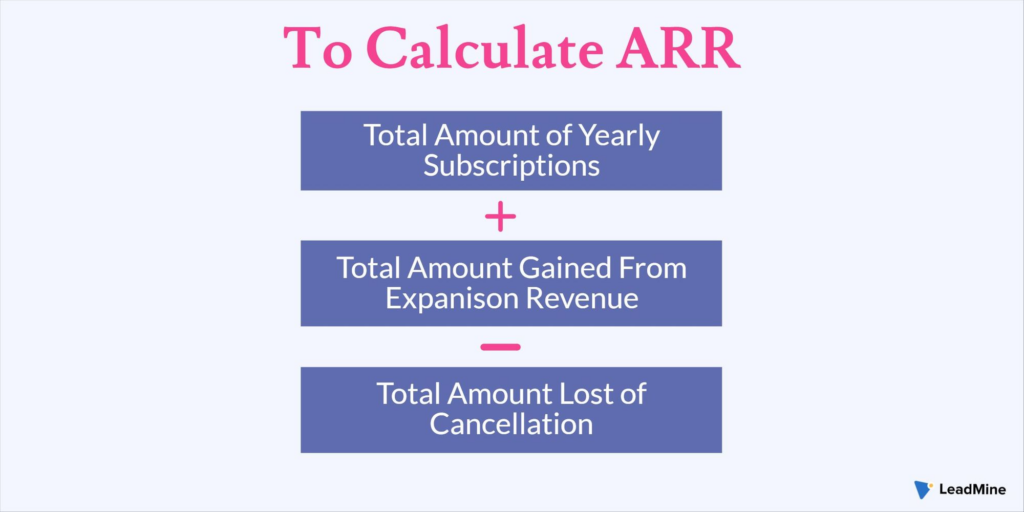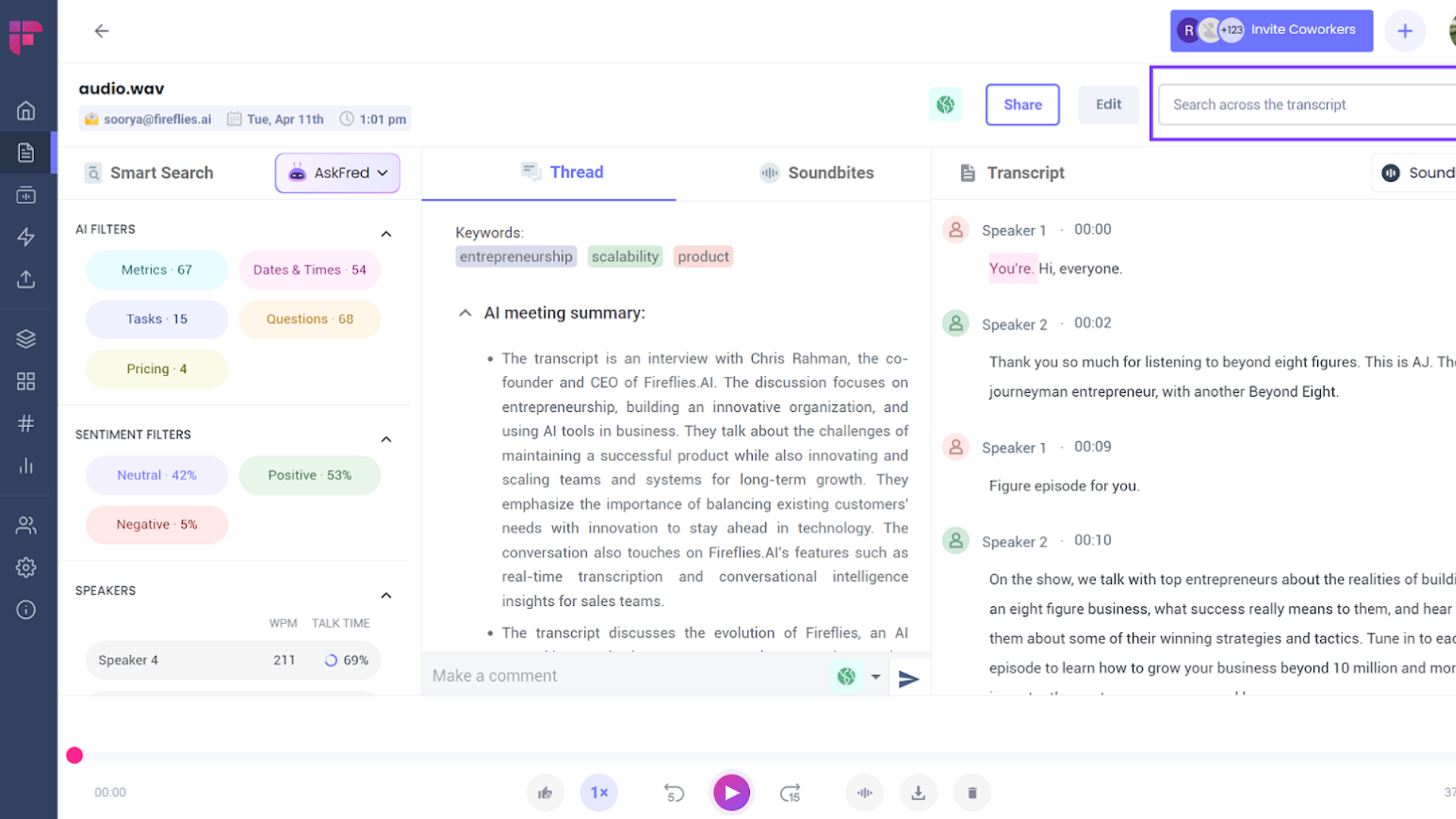Confused about ACV, TCV, and ARR? You’re not alone, as these financial metrics can be perplexing for even the most savvy business professionals. Factually speaking, understanding them is essential as they play a crucial role in measuring your company’s health and growth trajectory.
This blog will unravel the mystery and clearly explain how to calculate each of them while highlighting their applications in various scenarios. Intrigued? Let’s dive right into it!
Key Takeaways
- ACV, or Annual Contract Value, measures the average yearly revenue generated from a single contract in subscription-based businesses.
- TCV, or Total Contract Value, provides a comprehensive view of the overall value that can be generated from all aspects of a customer’s subscription-based contracts over time.
- ARR, or Annual Recurring Revenue, represents the total revenue value generated from all recurring contracts over a 12-month period for measuring growth and performance in subscription-based businesses.
Understanding ACV, TCV, and ARR
ACV, TCV, and ARR are key metrics used to measure sales performance, customer success, and revenue growth in subscription-based businesses.
Annual Contract Value (ACV)
Annual Contract Value (ACV) is a critical metric used primarily by companies with subscription models. It allows you to calculate the average yearly revenue generated from a single contract.
For instance, if your company signs a two-year deal worth $24,000, the ACV would be $12,000. This value gives an accurate depiction of your earning potential per agreement and helps in forecasting future revenue.
Although it doesn’t cover the entire lifespan of contracts like TCV does, ACV still provides valuable insights into annual profitability for organisations utilizing recurring revenue models such as Software as a Service (SaaS).

Total Contract Value (TCV)
TCV, or Total Contract Value, is a metric used to measure the overall value of contracts. Unlike ACV which only considers one year of contract value, TCV takes into account the entire duration of the contract.
It provides a comprehensive view of how much revenue can be generated from all aspects of a customer’s subscription-based contracts over time. By calculating TCV, sales teams and customer success teams can better understand the long-term potential value that each contract brings.
This enables them to make informed decisions about resource allocation and prioritize activities that will drive growth year-over-year.

Annual Recurring Revenue (ARR)
Annual Recurring Revenue (ARR) is a key metric for measuring the growth and performance of subscription-based businesses. ARR represents the total revenue value generated from all recurring contracts over a 12-month period.
It allows companies to determine their yearly revenue from ongoing subscriptions, providing insight into their financial stability and potential for future growth. By tracking ARR, businesses can monitor changes in customer retention, identify trends in sales performance, and make informed decisions to drive customer success and maximize revenue.

Differences and Applications of ACV, TCV, and ARR
ACV measures the value of a contract for a single year, TCV measures the value of a contract throughout its duration, and ARR measures the revenue value of all subscription-based contracts.
ACV measures the value of a contract for a single year
ACV, or Annual Contract Value, is a metric used to measure the value of a contract for a single year. It provides insight into the revenue generated by individual contracts within a given timeframe.
By calculating ACV, businesses can assess the financial performance of each contract on an annual basis. This information helps sales teams track their progress and identify areas for improvement in order to maximize revenue from each customer account.
With ACV as a reference point, companies can make informed decisions about pricing strategies and resource allocation to drive growth and profitability.
TCV measures the value of a contract throughout its duration
TCV, or Total Contract Value, is a metric used to measure the value of a contract over its entire duration. Instead of focusing on just one year like ACV, TCV takes into account the total value that will be generated from the contract throughout its lifetime.
This makes TCV particularly useful for businesses that have long-term contracts or recurring revenue streams.
By considering the complete lifespan of a contract, companies can get a more accurate understanding of the value they will receive in the long run. TCV helps organizations assess their overall performance and make strategic decisions based on their projected revenue from these contracts.
ARR measures the revenue value of all subscription-based contracts
ARR provides insight into the revenue generated by all subscription-based contracts. It measures the total amount of recurring revenue generated over a specific period, such as a year, from these contracts.
This metric is particularly useful for businesses that operate on a subscription model and want to monitor their ongoing revenue streams. By tracking ARR, sales teams and customer success teams can gauge growth year-over-year and assess the performance of their subscription business model based on its overall revenue value.
Calculating ACV, TCV, and ARR
To calculate ACV, TCV, and ARR, you can use simple formulas. These calculations are essential to understanding the value and growth of your contracts. Read on to learn more!
ACV formula and example
To calculate the Annual Contract Value (ACV), you simply multiply the monthly recurring revenue (MRR) by 12. For example, if a customer pays $100 per month for their subscription, the ACV would be $1,200 ($100 x 12 months).
This formula is useful for measuring the value of an individual contract over a one-year period. It allows sales teams and customer success teams to track performance and assess the average yearly value of a single account.
TCV formula and example
The Total Contract Value (TCV) measures the value of a contract throughout its duration. It takes into account all the years that a contract will be active and considers any additional services or features included in the agreement.
The formula for calculating TCV is fairly straightforward: simply multiply the Annual Contract Value (ACV) by the number of years in the contract term. For example, if a customer signs a three-year contract with an ACV of $10,000 per year, the TCV would be $30,000 ($10,000 x 3).
This metric is helpful for sales teams to understand the overall value of contracts and can be used to measure performance year-over-year.
ARR calculation
To calculate the Annual Recurring Revenue (ARR) of a company, you need to add up the revenue from all its subscription-based contracts throughout a specific period. This calculation helps measure the total value of ongoing subscriptions and can be used to track growth and performance year over year.
By analyzing ARR, sales teams and customer success teams can evaluate their efforts in acquiring new customers and retaining existing ones, while also providing insights into overall financial health.
To determine the ARR, simply sum up the monthly recurring revenue (MRR) for all active contracts within a particular timeframe.
Which Metric to Use and When
Use ACV to measure the value of individual contracts, TCV to measure the overall value of contracts, and ARR to track growth and recurring revenue.
Use ACV to measure individual contract value
To measure the value of an individual contract, you can use ACV or Annual Contract Value. This metric calculates the worth of a contract for a single year. It helps sales teams and customer success teams understand the performance and revenue generated from each account on an annual basis.
By focusing on ACV, businesses can evaluate the effectiveness of their sales strategies and track the value they are getting from each customer relationship.
Use TCV to measure the overall value of contracts
To get a comprehensive understanding of the value of all your contracts, you can rely on Total Contract Value (TCV). TCV takes into account the entire duration of each contract and sums up their value.
This metric is especially helpful for companies that offer long-term contracts or subscription-based services. By tracking TCV, businesses can gauge their overall performance and make informed decisions about pricing, customer retention strategies, and future growth opportunities.
It provides an accurate picture of the revenue generated from all contracts combined, giving stakeholders valuable insights into the financial health of the organization.
Use ARR to measure growth and recurring revenue
ARR, or Annual Recurring Revenue, is a key metric used to measure the growth and revenue generated from subscription-based contracts. It calculates the total annual value of all recurring revenue from subscriptions over a specific period.
By using ARR, businesses can track their performance and gauge how much revenue they can expect on an ongoing basis. This measurement allows companies to focus on maintaining customer satisfaction and ensuring high renewal rates for their subscription-based services.
Additionally, ARR provides valuable insights into the overall health of a business by illustrating its growth year-over-year and helping identify areas where improvements may be necessary.
Conclusion
In conclusion, understanding the differences between ACV, TCV, and ARR is essential for measuring sales performance and customer success. By using these metrics, businesses can accurately calculate contract value, measure growth year-over-year, and track revenue from subscription-based contracts.
Whether it’s evaluating individual contract value with ACV or assessing overall contract value with TCV, understanding these metrics will help drive business success.
Frequently Asked Questions
1. What are ACV, TCV and ARR?
ACV stands for Annual Contract Value, TCV is Total Contract Value and ARR represents Annual Recurring Revenue. These terms relate to subscription-based contracts in the SaaS (Software-as-a-Service) business model.
2. How do I calculate these values?
To calculate ACV, you average the total contract value over one year of a subscription-based contract’s term length. For TCV, consider the total monetary worth of a signed agreement for its entire duration. ARR is measured by adding the MRR (Monthly Recurring Revenue) across a year.
3. How can understanding these values contribute to business growth?
To calculate ACV, you average the total contract value over one year of a subscription-based contract’s term length. For TCV, consider the total monetary worth of a signed agreement for its entire duration. ARR is measured by adding the MRR (Monthly Recurring Revenue) across a year.
4. Generalizing it all, what’s LTV?
LTV or Lifetime Value provides an estimate of net profit attributed to the entire future relationship with each customer in comparison with customer acquisition cost; thus providing critical insights into long-term profitability.



